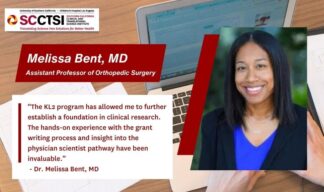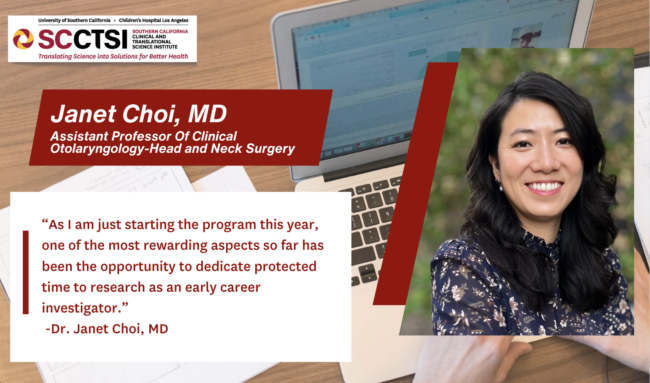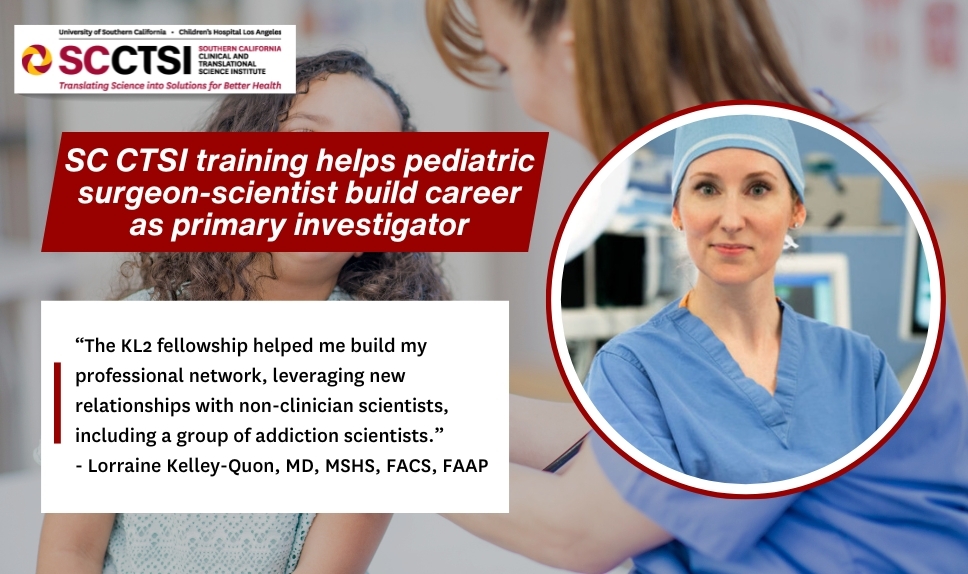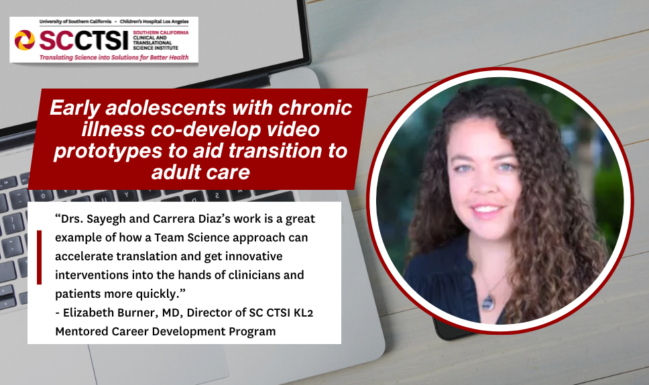The Mentored Career Development in Clinical and Translational Science (MCD-CTS/KL2) is a three-year program that trains clinical and translational investigators to conduct rigorous, innovative and community engaged research that improves health and addresses disease burden in our local communities in the heart of Los Angeles.
The SC CTSI Workforce Development (WD) group has funding through the National Institutes of Health (NIH), to award up to four Clinical and Translational Research candidates every year. Scholars will be provided an opportunity to acquire and refine the core knowledge and skill sets needed to become future clinical translational investigators, and be taught the skills to complete a grant that would have a high probability of being funded.
The fundamental training and career development elements revolve around structured didactic coursework; seminars; engagement in related career development activities (e.g., conferences and a mentoring program); and hands-on conduct of a research project under the supervision of mentors. Scholars are selected by a committee, which considers the applicant's prior training, research, and commitment to a clinical or translational research career, as well as potential to excel in the program. Scholars are encouraged to obtain an advanced degree in the Master of Science in Clinical and Translational Research from the Department of Population and Public Health Sciences at the Keck School of Medicine of USC which requires completion of the required 29 units of coursework.
Recent KL2 Awardee articles

Interview with Taylor Burkholder, MD, MPH, KL2 award recipient |

Interview with Melissa Bent, MD, KL2 award recipient |

Passing down generational knowledge of gestational diabetes risk for children |
Contact information
For more info
If you are interested in finding out more information about the MCD-CTS Program, contact us!


